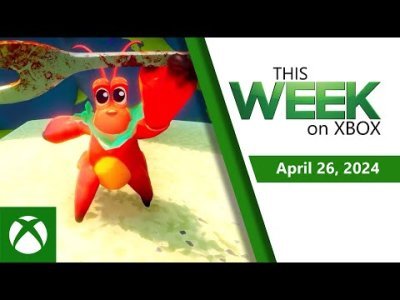scientists sayin planet has 100% chance for life?
-
Featured Products
-

Spec Ops Premium Experience Subscription With 14 Day Free Trial
From $3.00/monthFree for first 2 weeks(0)
-
-
Topics
-
Latest Videos
-
0LEGO Pirates of the Caribbean: 2024 LIVE STREAMS Ep. 9 (on Xbox Series X) - HTG
By: inadub · 04/28/2024 · 0 views -
0PlayStation - Uncle Chop's Rocket Shop - Release Date Trailer | PS5 Games
By: Commander Fury · 04/26/2024 · 0 views -
0XBox - Beat the Machine Rebooted - Xbox Announcement Trailer
By: Commander Fury · 04/26/2024 · 0 views -
0PlayStation - Smite 2 - Alpha Weekend Date Reveal | PS5 Games
By: Commander Fury · 04/26/2024 · 0 views -
0XBox - Hit the Court, Head Out to the Desert & Face the God of Death | This Week on Xbox
By: Commander Fury · 04/26/2024 · 0 views
-








Recommended Posts
Join the conversation
You can post now and register later. If you have an account, sign in now to post with your account.